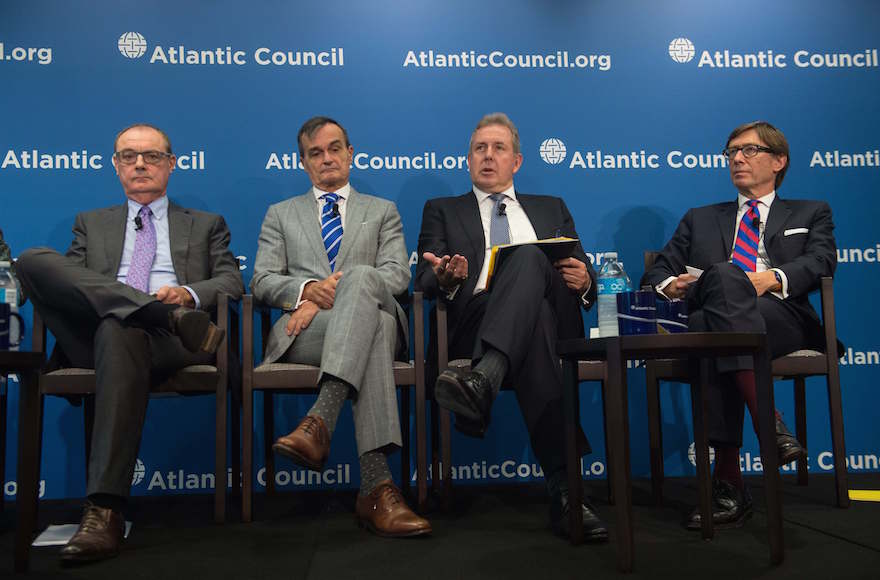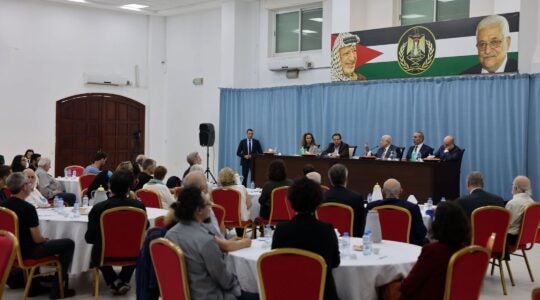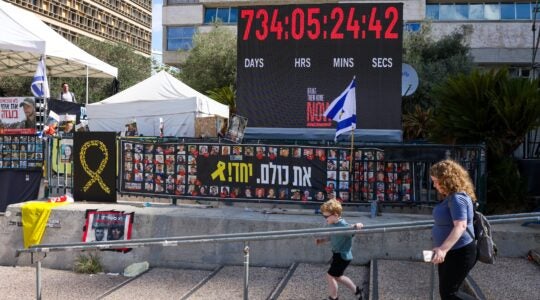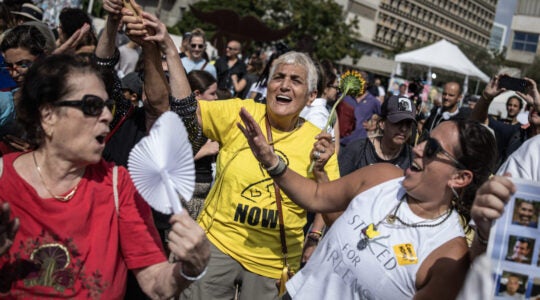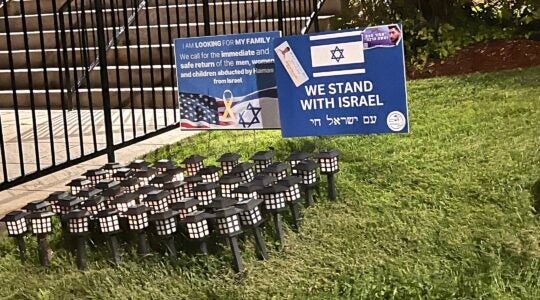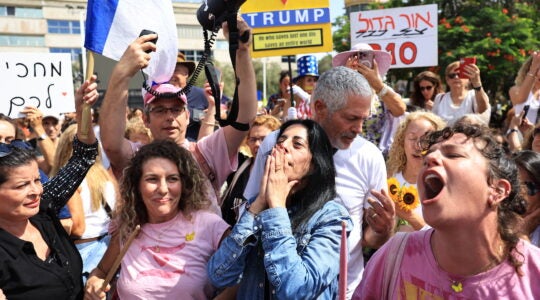WASHINGTON (JTA) — Ambassadors to Washington for America’s four European partners in the Iran nuclear deal said they opposed reopening the pact to negotiation, but would consider increasing pressure on Iran outside its framework.
“Iran is fully living up to its commitments,” David O’Sullivan, the European Union ambassador, said Monday at a forum convened by the Atlantic Council, a liberal foreign policy think tank. “This agreement is delivering on a very, very important objective, which is to make sure Iran does not develop nuclear weapons. I can think of no issue we have with Iran that would not be more difficult without the agreement.”
Joining in to agree at the sessions were the French, British and German ambassadors. The three countries and the EU, together with the United States, Russia, China and Iran, are signatories to the deal.
President Donald Trump has called the 2015 deal, which trades sanctions relief for a rollback of Iran’s nuclear program, among the worst ever negotiated. Israeli Prime Minister Benjamin Netanyahu also opposes the agreement.
“Iran just test-fired a Ballistic Missile capable of reaching Israel,” Trump said on Twitter on Sept. 23. “They are also working with North Korea. Not much of an agreement we have!” (Trump apparently was referring to a broadcast on Iranian TV over the weekend of footage of a failed missile launch eight months ago, Haaretz reported.)
Trump has said he will decide next month what to do about the deal. Among his options: He could pull out of the deal altogether; he could continue to abide by it; or he could declare to Congress that Iran is not compliant, which would leave any decision on pulling out to Congress.
Absent a full scrapping of the deal, Trump and Netanyahu have said it should be renegotiated, with a focus on extending the “sunset clauses” that end some of the nuclear development restrictions in about a decade.
The envoys at the Atlantic Council event appeared frustrated at times at having been subject to intense lobbying to amend the deal by the Trump administration, some Republicans in Congress and anti-agreement think tanks.
“Neither the Iranians nor the Russians nor the Chinese” would agree to reopen the negotiations, said Gerard Araud, the French ambassador. “It’s a dead end.”
“This was a deal with difficult partners,” agreed Peter Wittig of Germany. “Most prominently Iran, but also China and Russia.”
The British ambassador, Kim Darroch, said Trump’s complaints have had a salutary effect in focusing world attention on bad Iranian behavior outside the deal’s constraints, including the ballistic missile testing as well as military adventurism and backing for terrorism.
“What the administration has said since it came in has changed the climate on Iran,” he said. “It’s succeeding, but let’s keep the JCPOA,” Darroch added, using the acronym for the deal’s formal name, the Joint Comprehensive Plan of Action.
JTA has documented Jewish history in real-time for over a century. Keep our journalism strong by joining us in supporting independent, award-winning reporting.
